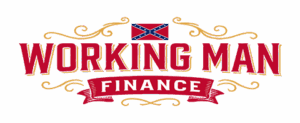In the intricate tapestry of human rights, few threads are as foundational and essential as the concept of private property.
From the dawn of civilization, the right to own, use, and dispose of property has been deeply interwoven with notions of individual freedom and prosperity.
Delving into the fabric of this fundamental human right reveals not only its historical significance but also its crucial role in fostering economic autonomy and personal dignity.
Join us on an exploration of private property rights, unraveling the principles that make it not just a legal claim but a cornerstone of human flourishing.
Capital: The Foundation of Wealth Production
In the realm of economic principles, the term “capital” holds a distinct significance, representing the property utilized or available for use in the production of wealth.
Unlike a mere representation of currency, capital encompasses tangible assets that serve the essential purpose of meeting human needs.
It forms the bedrock of economic systems, and, in its true essence, stands apart from being synonymous with money.

Private Ownership Aligned with Principles
A question often debated involves the alignment of fundamental, Christian, moral, ethical, and philosophical principles with the concept of private ownership of property engaged in wealth production.
Contrary to misconceptions, private ownership of legitimately acquired property used in production resonates harmoniously with Christian principles.
It encapsulates the idea that ethical wealth creation, through private ownership, is not only acceptable but integral to societal values.
Unveiling Capitalism: Beyond Property Ownership
The term “capitalism” is frequently associated with the right to own private property, but its essence extends beyond this common perception.
Contrary to a narrow understanding, various economic systems in harmony with Christian principles have upheld private ownership of honestly acquired property.
The right to own private property is deeply rooted in basic human nature, transcending the confines of specific economic systems.
Discover how ‘The Separation of Business and State‘ by Ryan Dawson explores this alignment, advocating for the ethical integration of private property in wealth creation within a moral society.
Capitalism’s Core: Borrowing for Productivity
In its strict sense, capitalism can be defined as a system enabling one generation to borrow for productive purposes, incurring debts to be repaid by succeeding generations.
However, a crucial nuance is often overlooked: capitalism, in its honest and practical application, should restrict borrowing at interest solely for productive ends, utilizing genuine savings.
The concept emphasizes responsible borrowing that aligns with the principles of ethical and sustainable wealth creation.

Embracing Private Property Rights in Capitalism
At the heart of capitalism lies the unequivocal right to private property.
Beyond economic structures, capitalism encompasses the freedom for individuals to own and responsibly manage property.
This fundamental right, deeply rooted in human nature, emphasizes the integral role of private ownership in fostering economic growth and individual prosperity.
Understanding capitalism, therefore, entails acknowledging and upholding the right to private property as a cornerstone of a flourishing society.
Unraveling Modern Capitalism: A Departure from Principles
The present-day manifestation of capitalism, often parading under the banner of free-market principles, starkly diverges from the ideals rooted in Christian, moral, ethical, and philosophical principles.
In its current state, modern capitalism stands accused of numerous transgressions that run counter to the essence of humanity and the principles of good governance.
Unveil the truth in ‘The Bankers’ Conspiracy! Which Started the World Crisis‘ by Arthur Kitson, exposing how capitalism is manipulated by International Bankers to serve international banking interests.”
The Flaws of Modern Capitalism
- Usurious Borrowing for Non-Productive Ends: Modern capitalism deviates from ethical norms by engaging in usurious borrowing for purposes that neither contribute to productivity nor foster societal well-being.
- Concentration of Wealth: While ostensibly championing the belief in private ownership, modern capitalism tends to concentrate wealth in the hands of a privileged few, leaving the majority devoid of access to essential tools of production.
- Professed Belief in Private Coinage and Regulation: Contrary to its proclamations, modern capitalism operates under the guise of endorsing private coinage and regulation of money, casting shadows on the authenticity of its professed principles.
- Profit-Centric Operation: In practice, modern capitalism prioritizes profit, ensuring substantial dividends for a select group of industry owners, while compensating laborers based on a “while-you-work” model, perpetuating economic imbalances.

Communism and Extreme Socialism: A Disregard for Private Property
The ideologies of communism and extreme socialism stand in direct opposition to the fundamental right to private property.
Embedded in their very names is the concept of state ownership of all wealth, leaving no room for private individuals to claim ownership.
Social Justice: An Antithesis to Modern Capitalism
Contrary to the tenets of modern capitalism, the concept of social justice rejects its fundamental flaws.
The four aforementioned errors inherent in the current economic system find resistance in the principles of social justice, which advocates for a more equitable and inclusive societal framework.

Sanctity of Private Ownership: Insights from Christian Authority
In exploring the doctrines surrounding private ownership and its alignment with Christian principles, the esteemed Blessed Thomas Aquinas emerges as a central figure endorsing the significance of individual property rights.
Blessed Thomas Aquinas firmly asserts, “It is lawful for a man to hold private property, and it is necessary for the carrying on of human life.”
Justifying Private Ownership: Blessed Thomas Aquinas Wisdom
- Incentive for Productive Work: According to Blessed Thomas, the allowance of private ownership serves as a vital incentive for individuals to engage in proper and meaningful work.
- Order and Social Peace: Private ownership, in Blessed Thomas’s perspective, establishes a sense of order and social peace. It ensures that each entity has its rightful place, mitigating disorder and preventing societal chaos.
- Indispensability for Social Harmony: Social peace, Blessed Thomas contends, is intrinsically tied to private ownership. Human contentment and societal harmony are achievable only when individuals can rightfully claim ownership, fostering a sense of satisfaction and stability.
All three reasons articulated by Blessed Thomas Aquinas emphasize the indispensability of material goods for human happiness, grounded in a deep understanding of human nature.
Christian Morality and the Ethical Aspect
In the realm of Christian morality and ethics, the endorsement is clear: private ownership is sanctioned, but only when tied to honestly earned or inherited titles to property and goods.
Condemning Dishonest Practices: The Role of Christian Leaders
Thomas’s teachings underscore the moral duty of Christian leaders to denounce systems that enable dishonest acquisition of wealth through manipulative practices.
Private control over the creation and destruction of money is criticized as unscientific, dishonest, unmoral, and even unconstitutional.
Thomas’s perspective resonates: “For imperfect happiness, external goods are necessary; not as being of the essence of happiness, but as serving as instruments toward this happiness, which consists in a virtuous life.”

Unveiling the Critique of Capitalism: Karl Marx’s Focus
Karl Marx, revered by socialists and communists, directed his critique solely at the capitalism of private property ownership.
His attack centered on the structure that perpetuated the concentration of wealth within the hands of private property owners.
Marx’s Silence on Private Money Creation and International Bankers
Surprisingly, Karl Marx’s comprehensive system did not target the abolition of illicit private money creation and destruction powers.
Instead, he proposed consolidating these powers under a system dominated by a select group of internationalists.
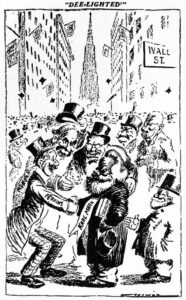
Warning Signs from American Statesmen
American statesmen, cognizant of ominous trends, have sounded alarms against the covert machinations of internationalists and the repercussions of accordion money systems.
As Charles A. Lindbergh, Sr., eloquently put it in 1916, there was a nefarious plot to transform the democratic essence into a monarchial and plutocratic system, camouflaged as a “world’s democracy.”
Democracy’s Farce: Monopoly over Medium of Exchange
The essence of democracy crumbles when a privileged few wield the highest power inherent in any government—the authority to supply the people with a sufficient medium of exchange.
Charles A. Lindbergh, Sr., in 1916, argued for transparency in the monetary system, akin to the openness of the political system, to truly uphold democratic values.
Explore Charles A. Lindbergh, Sr.’s compelling arguments in ‘Why Is Your Country at War and What Happens to You After the War and Related Subjects,’ revealing the urgent need for transparency in the monetary system to preserve true democracy
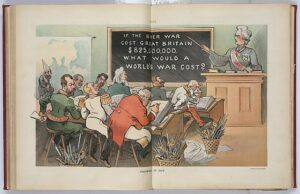
Striving for Widespread Ownership: Economic Imperative
Widespread ownership of property and the instruments of production becomes imperative to ensure a fair distribution of new wealth.
The legal claims of fixed capital owners should not be concentrated in the hands of a privileged few, disrupting the proper functioning of the economic system.
Averting Concentration of Ownership: Challenging the Status Quo
Contrary to inevitability, concentration of ownership in the hands of a few is not an inherent trait of economic systems.
It occurs due to the vulnerability of a collapsible money system, which facilitates the periodic shaking loose of properties from the many to the privileged few.
Inequality Under the Present Money System
Under the current money system, equal opportunities are a mere illusion.
Charles A. Lindbergh, Sr., highlighted the paradox where the narrative of equal opportunity coexists with deliberate efforts to impede the masses from achieving success, ensuring the perpetuation of privileged exploits.
Delve into ‘Banking and Currency and The Money Trust‘ by Charles A. Lindbergh, Sr. (1913), exposing the intricate power dynamics and the need for reform in the banking system to protect democratic values
The Facade of Modern Capitalism
Modern capitalism, professing to rely on the principles of honestly acquired private property and the theory of lending money for productive ends, falls short of being sound, Christian, or constitutional.
It diverges by concentrating wealth, lending for destructive purposes, and relying on the creation of fictitious money.
Unmasking Modern Capitalism’s Injustices
The statement is warranted as modern capitalism opposes private property by concentrating it among a few elites.
It diverges from lending for productive purposes, opting for destructive lending policies, extracting payment in hard-earned dollars while reaping where it did not sow.
It favors profits for industry owners, often paying laborers less than a living wage.
Discover ‘The Ethics of Corporate Responsibility: A Legal Perspective‘ by Ryan Dawson, a critical exploration of corporate ethics and legal accountability in today’s business world.
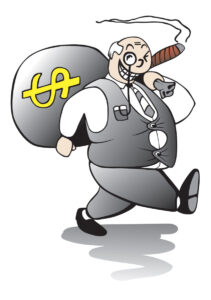
The Radical Nature of Modern Capitalism
Unnatural and unsound elements define radicalism.
Modern capitalism, unjust and incapable of fostering prosperity, stands alongside communism in seeking what is not its own.
While communism posits the citizen exists for the State, modern capitalism asserts the citizen exists for banker plutocrats.
Claims and Opposition within Modern Capitalism
Some, driven by ignorance or malice, staunchly resist rectifying a broken money system, labeling dissenters as unsound and radical—akin to the communists who oppose them.
The Media’s Allegiance to Modern Capitalists
The modern newspaper, often influenced by banker-controlled advertisers, supports modern capitalists to align with the interests of these financial elites.
Lindbergh’s Identifications and Conflicting Loyalties
Charles A. Lindbergh, Sr.’s identification of modern capitalism with modern communism holds weight, revealing that, despite open opposition, some modern capitalists privately support elements of communism.
Uncover the insights in ‘The Economic Pinch’ by Charles A. Lindbergh, exploring the financial pressures and economic challenges facing society in the early 20th century.
The Ignorance Factor
Not all capitalists and journalists supporting modern capitalism are to be indicted.
Many are unaware of the consequences, fearing chaos if the control of money is taken away from Federal Reserve Bankers.
The Paradox of Overproduction
In “orthodox” economics, overproduction is producing more than people have the money to buy.
In a rational economic system, it’s producing more than people can consume, assuming lack of money is not a barrier.
Unraveling the Fundamental Fallacy
A vital flaw in orthodox economists’ theories is their refusal to acknowledge that the issuance of money’s power belongs to the nation, not private individuals.
The fallacy lies in banks creating money without giving up anything, unjustly taxing all who use money.
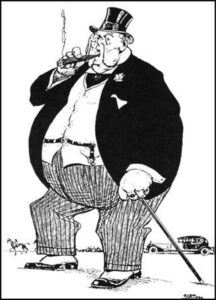
Recapitulation: Unraveling the Threads
- Sound Foundations of Private Property: The right to private property, when honestly acquired, stands as a sound, Christian, constitutional, and quintessentially American principle.
- Private Property as Capital: Private property is not just ownership; it’s capital that holds the potential to contribute to wealth generation.
- Divergence in Capitalist Paths: Capitalism unfolds in two forms — honest capitalism and modern capitalism. While honest capitalism utilizes property for wealth creation and societal well-being, modern capitalism exploits others’ property, concentrating wealth among a few, and supporting destructive loans.
- Fictitious Money in Modern Capitalism: The money in modern capitalism is fictional, demanded back in dollars acquired for tangible wealth.
- Radicalism in Modern Capitalism: Modern capitalism, akin to communism, proves radical. While communism asserts all citizens and property belong to the State, modern capitalism aligns with international banker plutocrats, envisioning ownership of both property and the State.
Navigating the Landscape of Property and Capitalism
In the intricate tapestry of property rights and capitalism, we’ve uncovered the essence of private ownership, distinguishing between honest capitalism and the complexities of its modern counterpart.
Understanding the nuances of capital and the divergent paths capitalism can take is crucial in shaping societies and ensuring economic justice.
As we wrap up this exploration, we invite you to delve deeper into the realm of finance in our next blog post, where we unravel the complexities of “Modern Banking.”
Gain insights into the pivotal role of banks in shaping economies, and discover the dynamics that influence the flow of capital in today’s financial landscapes.
Stay tuned for an insightful journey into the heart of modern banking, and thank you for being part of our exploration.
Your quest for knowledge continues in our upcoming post – don’t miss the opportunity to expand your understanding of the intricacies of the financial world.
